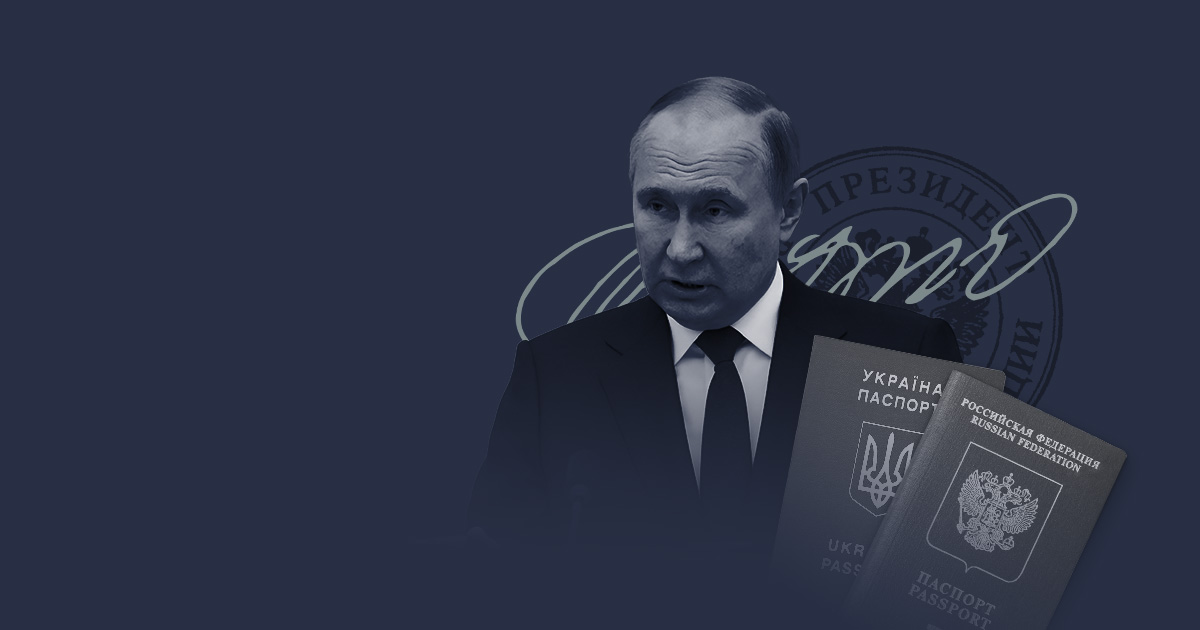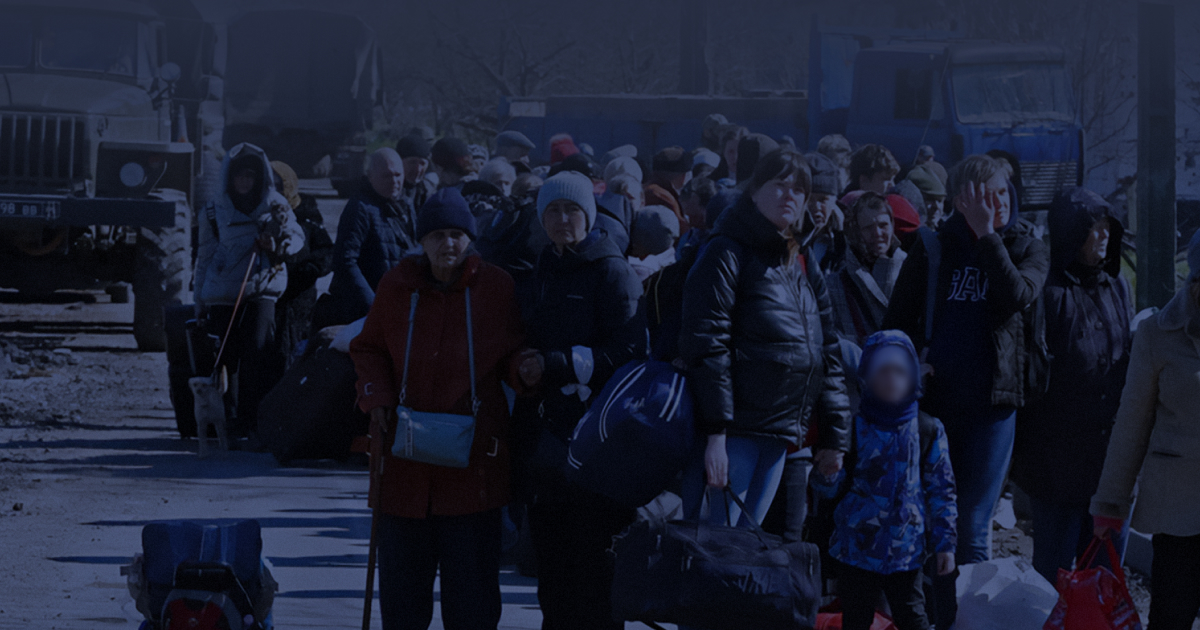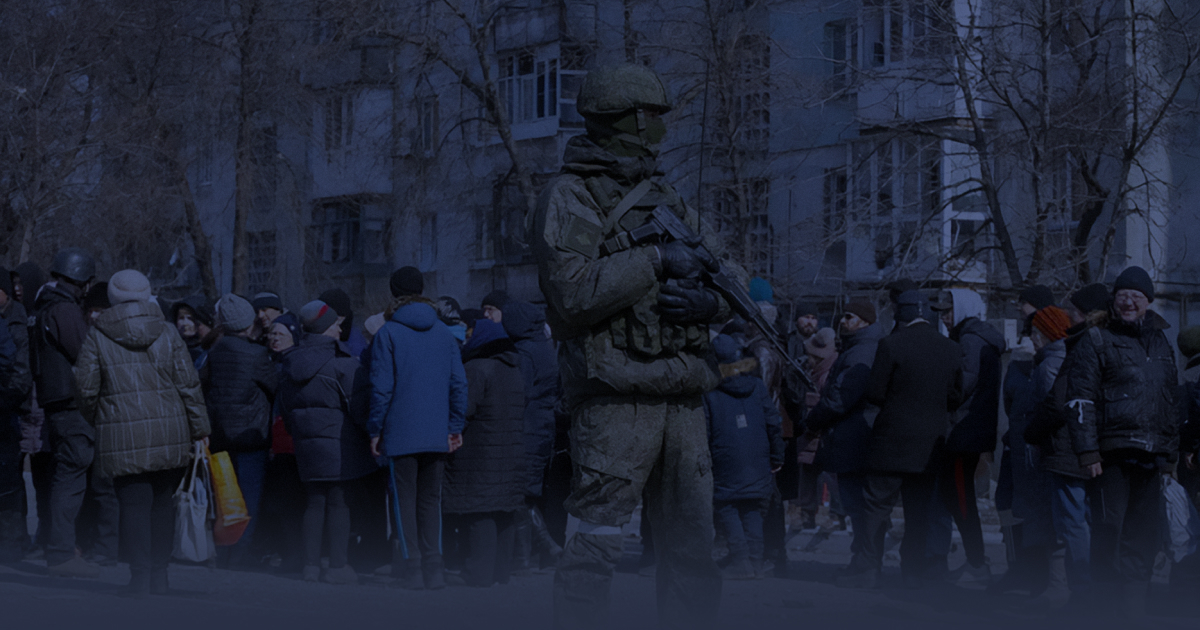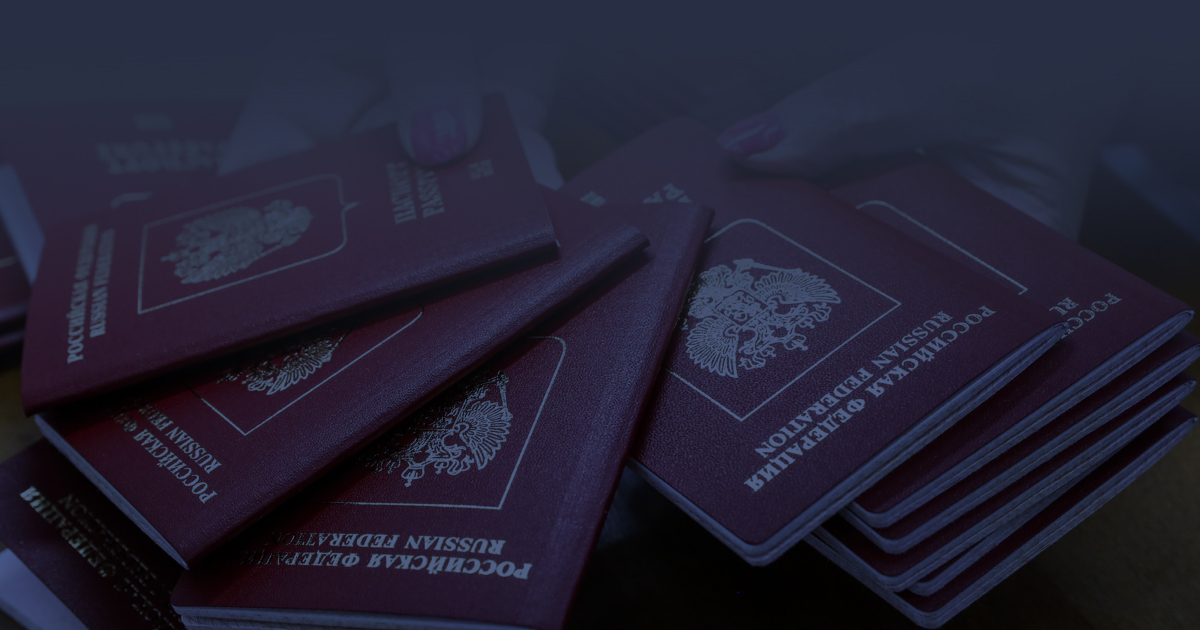What Does Putin's New Decree on Russian Citizenship Mean?

On April 27, Vladimir Putin signed a decree regarding Ukrainians who do not want to "receive" Russian citizenship in the temporarily occupied territories of Ukraine. According to the document, people without "citizenship" are considered foreigners and can be deported if they "pose a threat to the national security of the Russian Federation".
"The wording is confusing, there are many categories and references, and there is no date from which Ukrainian citizens who are in the temporarily occupied territory or the territory of the Russian Federation should be registered as 'foreigners'. This complexity and confusion of the text are not accidental. The goal is to create panic so that people get Russian passports," human rights activists say.
We explain what this means for the residents of the temporarily occupied territories as well as the stance and recommendations of Ukraine and human rights defenders.

Putin's New Decree
On April 27, the President of the Russian Federation signed a decree "On the Peculiarities of the Legal Status of Certain Categories of Foreign Citizens and Stateless Persons in the Russian Federation". According to the decree, Ukrainians in the temporarily occupied territories who have not "received" Russian passports are "recognised" as so-called "foreign citizens and stateless persons permanently residing in Russia". Based on their documents, they allegedly have the right to live in the temporarily occupied territories until 1 July 2024.
If Ukrainians without Russian passports "pose a threat to the national security of the Russian Federation," they may be deported and banned from entering Russia and the temporarily occupied territories.
On April 28, Putin signed a law according to which people who have "acquired" Russian citizenship can be deprived of it for "terrorism", "grave crimes against the state", "calls for actions against the territorial integrity of Russia", "discrediting the Russian Armed Forces", "sabotage" and "extremism".

Human Rights Defenders' Stance
"The wording is confusing, there are many categories, many references, and there is no date from which Ukrainian citizens residing in the temporarily occupied territory or the territory of the Russian Federation should be registered as 'foreigners'," comments Olena Lunova, advocacy director of the Human Rights Centre ZMINA.
"People with their [Ukrainian - ed.] documents can live in Russia and the temporarily occupied territories until July 1, 2024. In Lunova's opinion, this date does not apply to Ukrainian citizens but to foreigners.
There is no date for Ukrainian citizens to obtain a "residence permit" or other documents provided for by Russian law and illegally distributed by Russians in the Ukrainian territories.
"This complexity and confusion is not accidental. The goal is to create panic so that people get Russian passports. The decree has Article 13, which says that foreigners can be 'expelled' from the territory if they 'threaten national security' or 'encroach on the constitutional order'. But all of the above is already criminalised in Russia. The general impression is that any failure to support Russia could result in expulsion. Perhaps this was the goal - to make people think that if they do not support Russia in any way, they can be expelled," says the human rights activist.
Ukrainian citizens in Russia have already been subjected to expulsion decisions yet not expelled but held in special centres for foreigners' detention.
Lunova finds it strange when people who do not live under occupation give out advice such as "Do not take a Russian passport at any cost".
"As a state, we must say that we do not recognise these passports because it is an automatic or forced acquisition of Russian citizenship. Therefore, we must be consistent and say: 'If you need a passport to survive in the temporarily occupied territory, get one, but save yourself. We do not recognise it [passports], and you are citizens of our country for us."

State's Stance
The Ukrainian Parliament Commissioner for Human Rights, Dmytro Lubinets, responded to Putin's new decree. However, the Ombudsman believes that the decree is not aimed at deportation but at "legalising" forced passportisation and "putting an end to" this process.
According to Lubinets, Ukrainians who refuse to get a Russian passport will be arrested and become a separate category of civilian hostages held captive by Russia.
"I would advise Ukrainians in the temporarily occupied territories to take a Russian passport. We understand that now it is a matter of survival. We understand that this is happening under physical pressure. Therefore, take a passport, survive and wait for us to liberate the territory. As the Ombudsman of Ukraine, I publicly say that we, as a state, do not recognise the Russian passport as an element of a crime committed by our citizens," Lubinets says.
He adds that they are drafting a law allowing people to refuse a Russian passport officially.
At the same time, Deputy Prime Minister and Minister for Reintegration of the Temporarily Occupied Territories Iryna Vereshchuk has written that her recommendations to Ukrainians in the temporarily occupied territories remain the same: "not to take Russian passports, not to cooperate with the occupiers, to leave if possible and wait for the Armed Forces".
In a comment to Suspilne, Dmytro Lubinets said he would appeal to the Cabinet of Ministers to explain Iryna Vereshchuk's words.
Vereshchuk adds that the Ministry of Reintegration has once again appealed to the Russian side and the International Committee of the Red Cross to open humanitarian corridors to the territory controlled by Ukraine.


